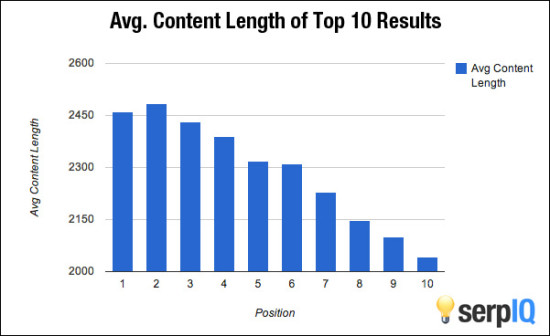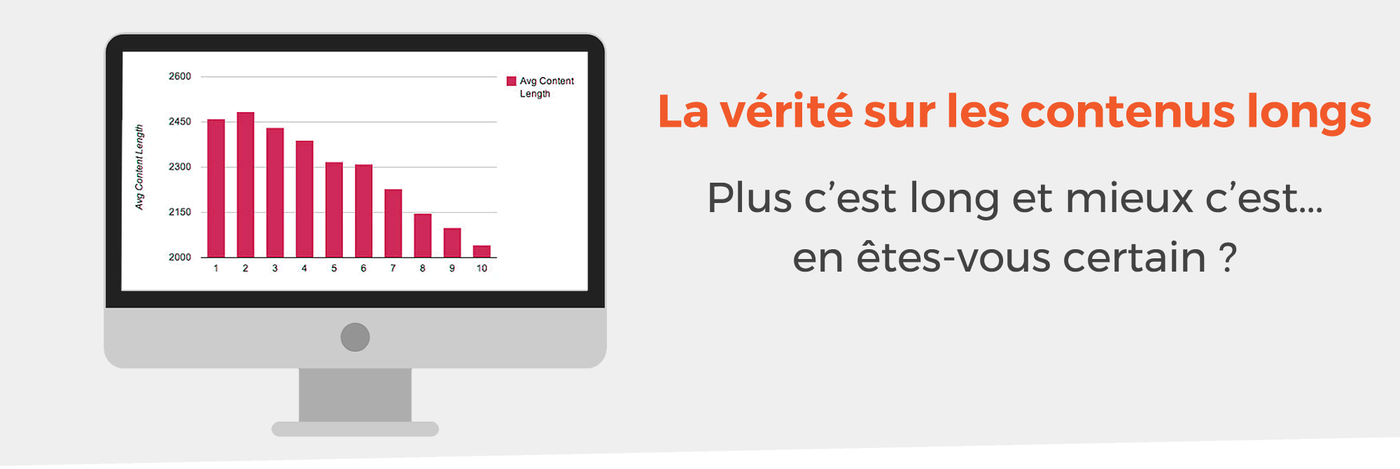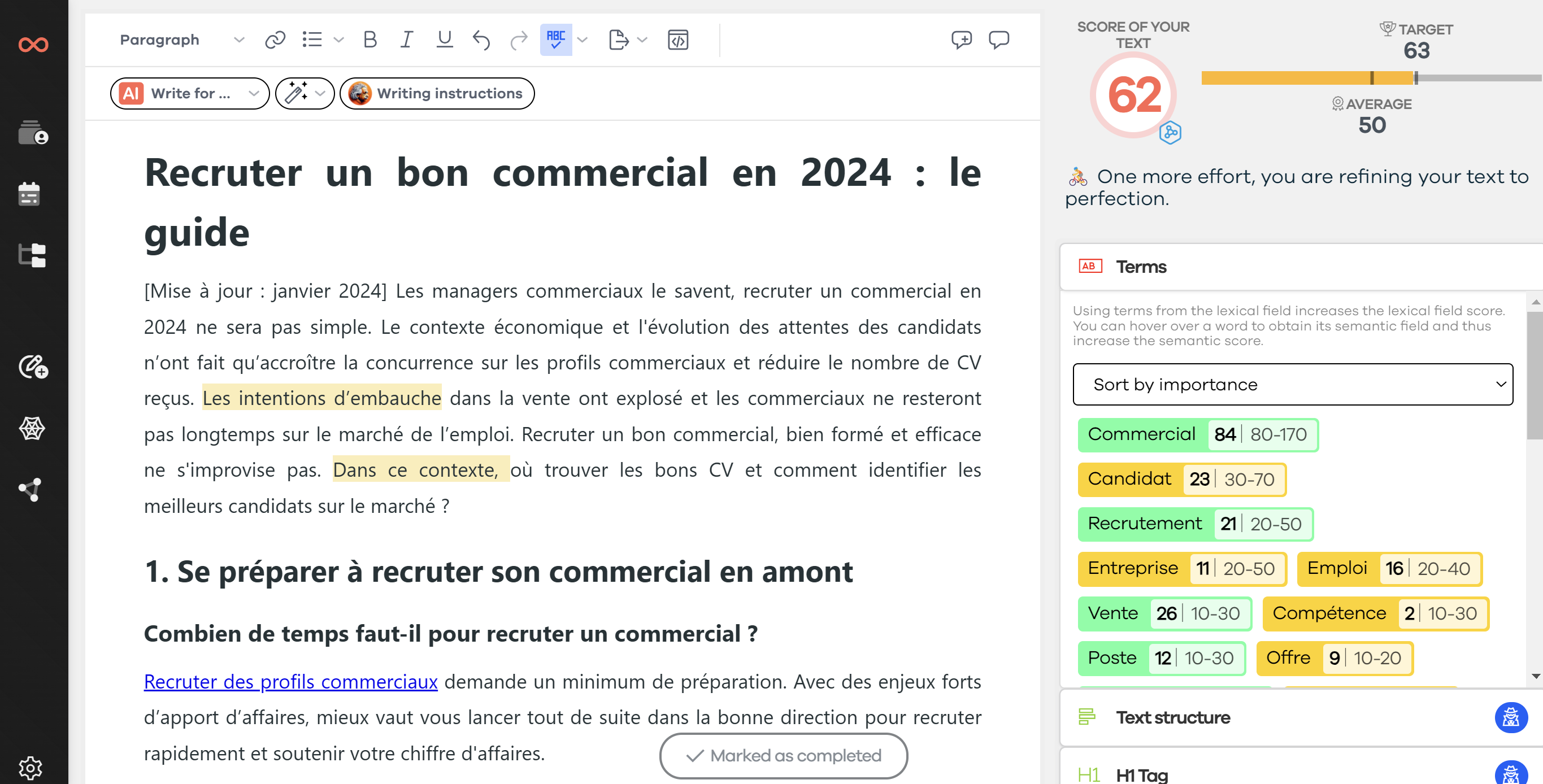Have you ever wondered why some short content ranks so well? What's the secret? In discussions with the SEO community, I notice that this topic frequently comes up: the length of content, it seems the longer, the better. Are you sure about that? Some consider long content as the new Holy Grail of organic SEO, all because of studies showing a correlation between content length and ranking. Let's discover together what the real importance of content length in SEO is and how to define it.
⚖ What is the ideal length of content for SEO?
You've done your research on the Internet and discovered that content length is crucial for your pages' ranking? That's not true! In itself, the number of words is not a ranking factor. What really matters is the quality of the content. This has been confirmed several times on Twitter by John Muller [1], a search advocate at Google. Martin Splitt, a developer advocate at Google, also confirms this in the video below.
What has confused people are the numerous statistics available on the Internet. For example, Backlinko announced in 2020 that the average content displayed on Google's first page contained 1,447 words [2]. So everyone thought they had to write at least 1,500 words to be in the top 10... Other analyses have even shown that a web copywriter should write at least 2,000 words per content to appear on the first page of search engines!

Example of SEO statistics on the link between word count and position
The reality is that what's important is not the size of the content, but its relevance! Is it exhaustive and does it answer the Search Intent? If, after reading it, you answer yes to these two questions, then your page is ready to be published. When you work on a keyword, never forget to put yourself in the shoes of the Googler and try to perfectly understand what lies behind a query.
However, you will notice that very few displayed results contain less than 300 words. Why? Because, you'll agree, it's complicated to cover a topic in its entirety with such a short text. However, this again depends on the theme. If, for example, you are describing a stainless steel screw, then it may be difficult to write more (the first result displayed contains only 125 words!).
What you need to remember is that there is no ideal length for web content! Your primary goal is to meet the user's needs by covering the topic in a complete and detailed manner. To get an idea of Google's expectations, you just need to analyze the SERP or use SEOQuantum's semantic analysis tool.
## 🔎 Difference between content and container
I believe that the concept of "long content" is misunderstood, confusing "content" with "container". Whether it's a blog post, an infographic, a guest post, it's not the container, but the content presented in these types of content that matters. Therefore, if the content is bad, no matter its format... it remains bad. Long content will not be able to deliver the results and objectives targeted by you or the marketing team.
Olivier Andrieu also reminds us of this in his article dedicated to this topic in 2021 [3]. He rightly recommends that the length of an SEO content be adapted to the type of editorial format you are writing. In summary, if you are writing a blog post, a commercial page or a user guide, the number of words to use will vary considerably.
Of course, long content (at least the good ones) intentionally targets users who are looking for long and detailed information. The visit time on your content is therefore higher, the bounce rate is better and so on (see Google ranking factors). But you could do the same with short content.
## 💞 Correlation does not mean causality!
Let's go back to the comments on SEO studies (the longer the content, the better). A correlation does not mean causality: this is an important concept, especially because many SEO studies you see are based on correlations. Many scientific studies use correlations to prioritize one hypothesis or another. But that does not mean that the variable in question is the cause. Just a correlation. That's very different.

That's why we call this tendency to confuse correlation and causality the "stork effect".
## 👀 How can short content be visible on Google?
Short content should be focused on a single problem. The content is very targeted, often a single image or video that explains a single concept. You should always try to simplify the content. Short content is precise and focused on a specific point or concept that meets the user's intent!
The secret to a good short content that ranks:
- Discover the intent of users, answer their questions and help them achieve their goals
- Provide added value
- Offer different content from competitors (as Oscar Wilde said "be yourself, everyone else is already taken")
- Provide a user experience that is different, easy and accessible on all devices
The term "quality content" does not mean "long content". In fact, "good content" usually means nothing at all. Its definition is subjective and specific to each keyword.
For each keyword (or group of keywords) corresponds a type of user (the avatar), I often determine the following points:
- What type of content (format) does the user use on a daily basis? Blog, video, infographic...
- What format adds value to my content?
- How to differentiate my format/content pair from competitors?
The problem is that very few people do this kind of strategic thinking. They prefer to exploit the new trendy format, without wondering if the format is consumed by the audience and if competitors have already used it.
## 🥇 In SEO, short content can win!
Rather than applying a systematic long content tactic where you define content length as the only indicator of quality, adapt your content to the needs of your audience and your business objectives. 300, 500 or 1,000 more words will not help you achieve your positioning goals more easily.
Create content that helps users. Do it effectively. Write for the reader, never write a post or infographic that conveys little added value. Your audience and your organic SEO will be very grateful.
## 🙏 Sources used to write this article
[1] https://twitter.com/JohnMu/status/1021690796691607552?s=20
[2] https://backlinko.com/search-engine-ranking
[3] https://www.abondance.com/20211115-46571-comment-calculer-la-longueur-dun-contenu-seo.html
Need to go further?
If you need to delve deeper into the topic, the editorial team recommends the following 5 contents:

